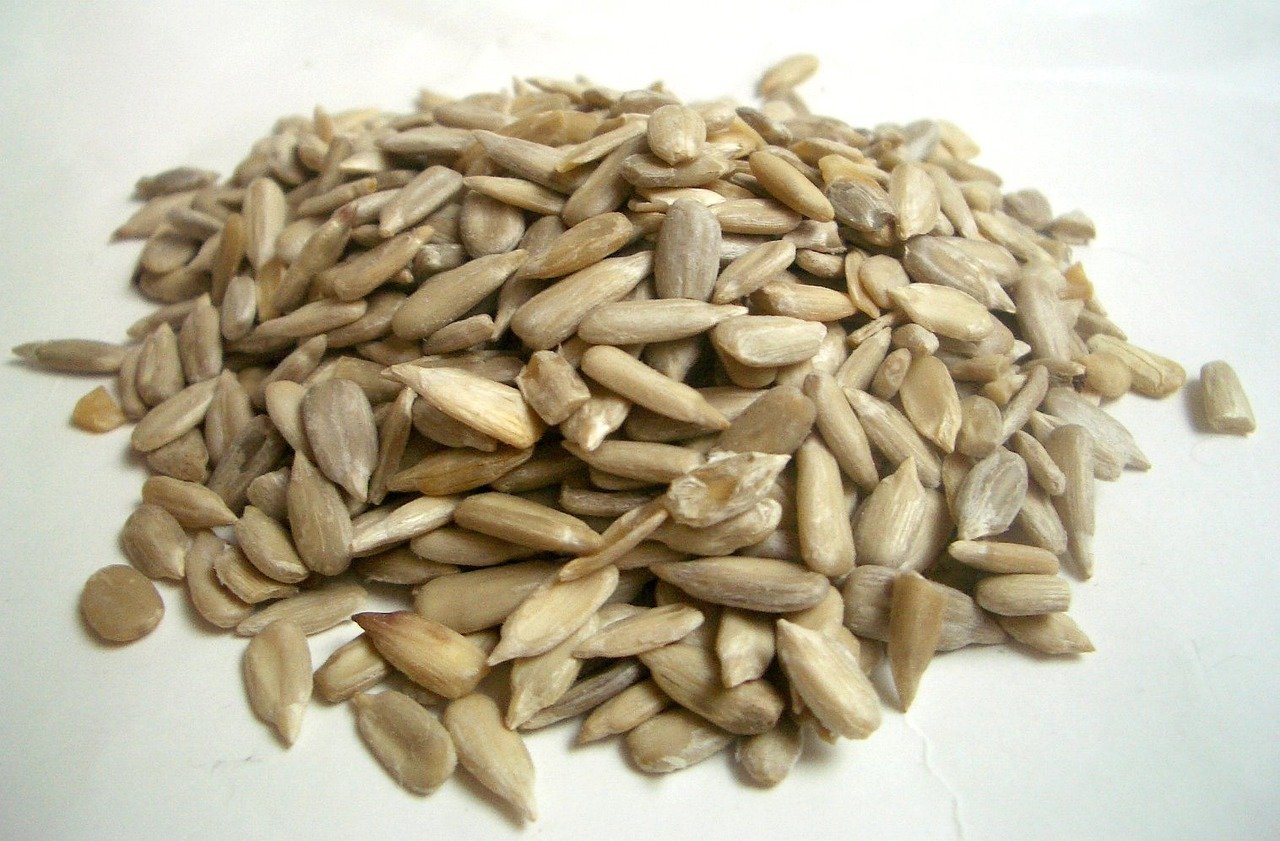
The sunflower belongs to the Asteraceae family and is native to the Americas. The origin of the name sunflower is derived from the meaning that the flower buds move toward the sun before the sunflower blooms, and the flower blooms while looking at the sun. It grows up to 8m tall in its place of origin, but grows to about 3m in Korea. Flowers bloom in August-September and produce up to 1000-2000 seeds. Sunflower seeds contain a lot of nutrients that are good for health and have an excellent taste, making them a popular snack food. Today we are going to learn about these sunflower seeds.
7 Benefits of Sunflower Seeds
1. Improvement of vascular disease and prevention of high blood pressure
Sunflower seeds are rich in magnesium and unsaturated fatty acids. Magnesium prevents blood pressure from rising, relaxes muscles, and protects bones, while unsaturated fatty acids lower triglyceride levels and blood cholesterol levels to clear blood vessels and improve blood circulation. Because it lowers the level of harmful cholesterol, LDL, which causes blood clots, it can prevent vascular disorders such as arteriosclerosis, cerebral infarction, and stroke in advance.
2. Help for eye health
Sunflower seeds are rich in vitamin E that helps eye health. Vitamin E helps to improve eyesight by preventing aging-related eye diseases such as macular degeneration, cataracts, and retinal lesions by acting as an antioxidant and lowering inflammation levels. In addition, vitamin A and beta-carotene contained in sunflower seeds are also known to help protect eyesight and prevent eye diseases. 3. Improvement of anemia Since our body does not store folic acid for a long time, folic acid is a nutrient that is easily deficient. This deficiency of folic acid leads to anemia, so it is recommended to continue to consume foods rich in folic acid. Sunflower seeds are rich in folic acid, which helps prevent anemia caused by folic acid deficiency. In addition, the iron, zinc, magnesium, vitamin A, and vitamin C components contained in sunflower seeds promote the production of hemoglobin necessary for blood formation and increase the absorption rate of iron in the body to prevent anemia.
4. Memory enhancement
Acetylcholine is a neurotransmitter that is essential for us to remember, and when acetylcholine is properly secreted, memory is maintained and learning is possible. Sunflower seeds have the effect of inhibiting enzymes that break down acetylcholine, and help activate acetylcholine receptors, improving learning and memory. Also, the zinc component contained in sunflower seeds activates brain cells and helps to improve brain functions such as memory and cognition, which is effective in preventing dementia.
5. Anti-aging
Free radicals are the main culprits that cause aging by attacking cells and DNA in our body. Sunflower seeds are rich in carotenoids and tocopherols, which are antioxidants that remove these free radicals, and are rich in fat-soluble vitamins A and E and selenium that help anti-aging. This powerful antioxidant action and inhibition of free radicals in the body prevent aging by preventing damage and degeneration of human tissues. 6. Immunity enhancement Vitamins A and E contained in sunflower seeds remove free radicals that cause fatigue in the body and lower immunity, and promote metabolism to increase resistance to disease. Zinc and selenium, which play an important role in the immune system, are also abundant, helping to maintain and develop immune cells.
7. Anti-cancer effect
Selenium in sunflower seeds kills cancer cells in the process of being metabolized in the body, suppresses the production of carcinogens, promotes detoxification, and prevents cancer by removing free radicals that cause cancer. It also regulates the secretion and activity of thyroid hormones and regulates the immune function of the body. Selenium is not produced naturally in the body, so it must be obtained through food. Sunflower Seed Side Effects
People with allergies to nuts and Asteraceae should be careful. And since it promotes insulin secretion, diabetic patients should be careful, and because of its high calorie intake, excess weight will increase. In particular, in the case of men, excessive intake may cause a decrease in sexual function.
































